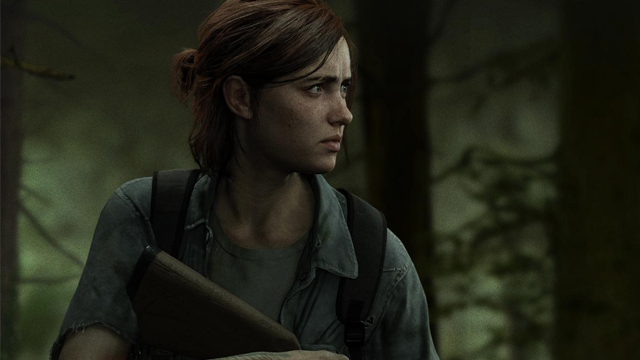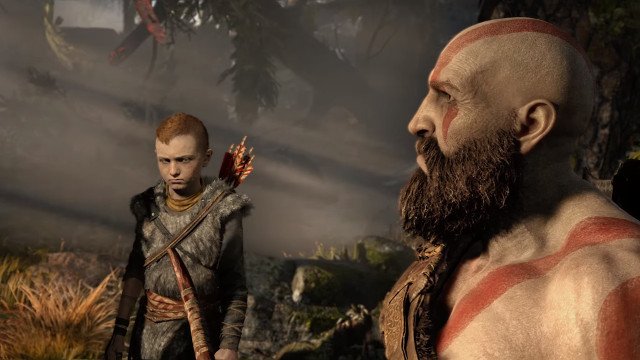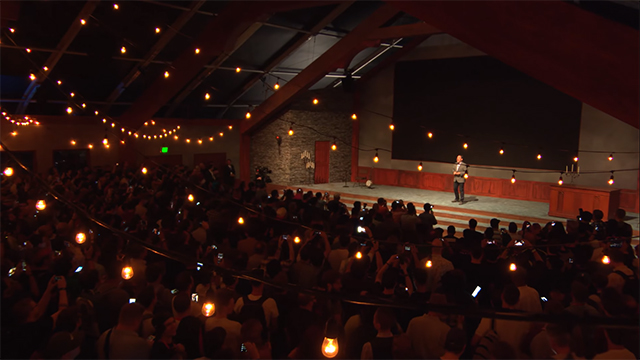Over the past decade, Sony wound up setting a new standard for E3 press conferences. Gone were the more mild showings of yesteryear financial statistics and the lengthy gameplay demos. They were replaced with orchestral openings, grand stage shows, and unprecedented game announcements that seemed like a dream come true for gamers. This switch allowed the console maker have a focus and big tentpole announcements. But Sony is ditching E3 in 2019 because it didn’t have much to show points out a big problem with AAA development and the resources that it makes to create those memorable megatons.
Sony, in a lot of cases, predicated its show on those megatons. Its E3 2015 press conference seemed to be the turning point from a major showcase presentation to being a bonafide event that everyone had to tune into. This was thanks to several gigantic announcements: the Final Fantasy 7 PlayStation 4 remake, the heavily fan-requested Shenmue 3, and that The Last Guardian was actually going to be freed from its development hell. However, it has been three years later and neither Final Fantasy or Shenmue are completed, as both were announced prematurely simply to give the crowd something to cheer over. Sony was prioritizing short-term moments over giving fans realistic long-term expectations.
This attitude finally backfired in 2018, as Sony has had less and less to actually show at every E3 since 2015. Sure, there is usually one huge title like a God of War or Marvel’s Spider-Man that it can use to fill space, but Sony is ultimately spending that time selling a game to the hardest of the hardcore who were already planning to pick them up. The jaw-dropping moments were starting to dwindle, and this was seen when Sony switched up their format to only highlighting a few games. The critical response was lackluster, and now they’ve decided to entirely forego a Sony E3 2019 press conference since it can’t match the precedent that they’ve set in past years.
It’s Unrealistic to Have a Show-Stopper Every Year

Part of the problem is that games are taking more resources and time to develop than ever before. For Sony to have a new title that comes out of left field and wow the audience, it has to invest in having one of their top studios work on a game for several years. Even if Sony Santa Monica reuses a lot of assets and mechanics, it’s not likely that we are going to see the next God of War in any meaningful way in 2019.
There is just too much work to be done on such a massive title. The results are more than worth it for a surefire hit, but we are never going to see a studio like Naughty Dog putting out yearly entries in The Last of Us because the games are simply too huge without an entire network of developers working on them (like what Ubisoft does with Assassin’s Creed). This is naturally going to lead to time periods where each team is still working on a project but can’t show it, which is almost assuredly what is happening right now.
And there is a risk of dumping astronomical amounts of money into these huge games even if Sony has been incredibly successful with its first-party offerings during this generation. Even though Horizon Zero Dawn wound up selling millions of copies, The Order: 1886 performed less than stellar on the market. Days Gone is about to be similarly tested, as the the Sony Bend developed third-person shooter has done little to inspire confidence after its many showings. Success isn’t guaranteed and a stumble could be costly when the stakes and budgets are so high. And failing to hit in a big way after spending big bucks is yet another folly of the ever inflating budget of AAA development, which makes itself more clear when you look at Sony’s E3 showings.
Game development, now more than ever before, is incredibly costly, and even the most beloved developers are just a flop or two from either being massively restructured or going the way of the dodo. AAA gaming is simply operating at too high of a risk, and we’re going to see many closures in the vein of Lionhead Studios and Visceral Games before anything changes. Things aren’t going to change when the rewards are so massive and it’s tempting to create the next mainstream hit. And those mainstream hits are taking longer to make.
The Sony E3 2019 Press Conference and Beyond

A permanent removal likely won’t do anyone any favors, but Sony going away for a year or so could lower expectations for future years. Rather than trying to play this impossible game where it tries to one-up itself year over year, Sony can mostly focus more on highlighting its yearly lineup while also showcasing some third-party efforts as well (be them smaller indie titles or impressive games that rival its own internal offerings). Sony needs to look a bit more into the near future, rather than the far future, and by doing so, it can do what press conferences were intended to do in the first place: to raise awareness of worthwhile titles that we don’t have to wait forever for.
Having such a gap in releases reflects harshly on AAA development as a whole. Clearly the current lineup of premier titles isn’t fruitful enough to fill out multiple annual press conferences from Tokyo Game Show to Paris Games Week and beyond. These large games naturally take a ton of time and point out how risky and elongated making a AAA title has become. Costs are only going to rise, which is not only risky and questionable, but also leaves the door open for Sony and the industry to invest more in smaller games that don’t suck up all the resources and leave publishers with an inconsistent release schedule. Huge games aren’t going to go away any time soon, nor should they, but there needs to be some middle ground between God of War and Flower. And Sony not having an E3 conference next year is proof of that.







